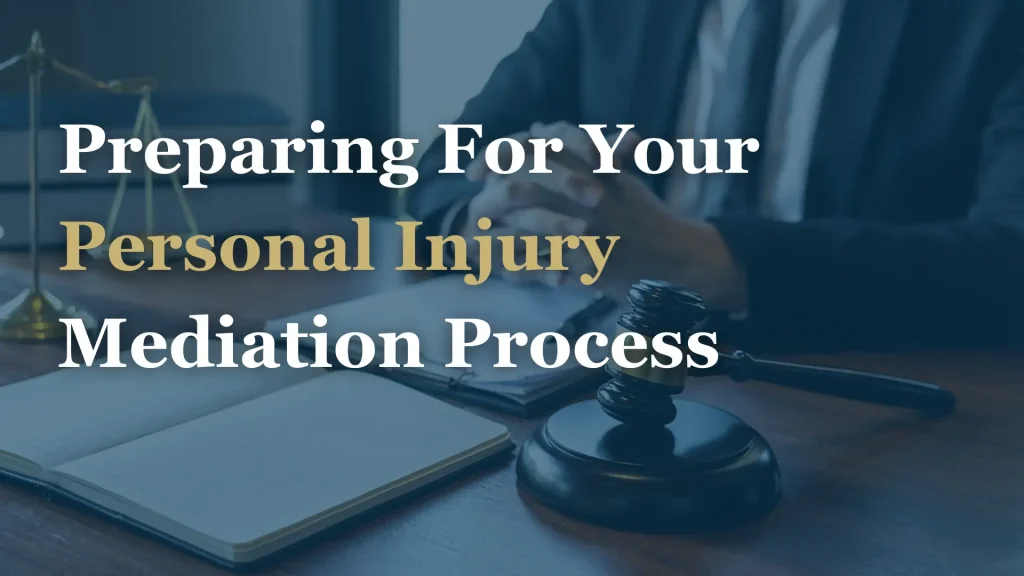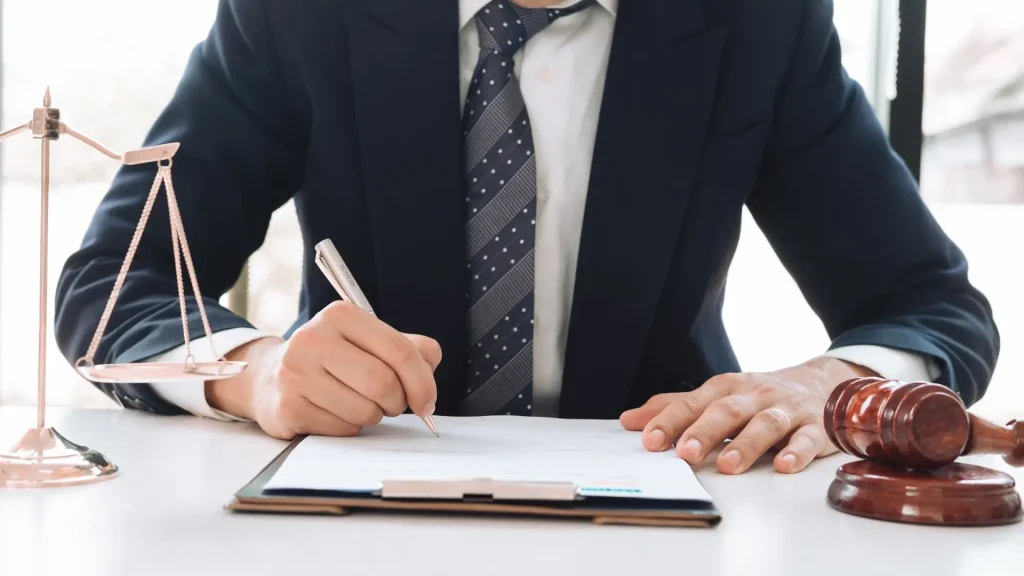
The personal injury mediation process is a structured, non-adversarial way to resolve claims without going to trial. Mediation can provide a less stressful and cost-effective way to reach a settlement agreement, but successful mediations require careful planning and preparation. Learn about the personal injury mediation preparation in Watertown below.
What Is Personal Injury Mediation?
Mediation is a form of alternative dispute resolution in which a neutral third party, known as a mediator, helps the parties involved negotiate and reach a settlement agreement. Unlike a trial, where a judge or jury determines the outcome, mediation allows the parties to control the resolution of their dispute. This control can be empowering, as it allows you to actively participate in the decision-making process. Mediation is voluntary, confidential, and typically less formal than court proceedings.
Mediation aims to reach a mutually agreeable resolution between you and the other party, often an insurance company or an at-fault individual. Preparing for personal injury mediation with the help of a personal injury attorney can increase the likelihood of a favorable outcome.
Steps in the Mediation Process for Injury Cases
These are some of the elements in a mediation:
- Pre-Mediation Preparation: Both parties gather relevant documents, evidence, and witness statements to present during the mediation session.
- Opening Statements: At the start of the mediation session, the mediator will explain the process and ground rules. Each side may give an opening statement summarizing its position and objectives.
- Confidential Discussions: After opening statements, the mediator may meet privately with each party to discuss strengths, weaknesses, and potential solutions. These discussions are confidential to encourage open communication.
- Negotiation: The mediator facilitates negotiations between the parties, often going back and forth to relay offers and counteroffers.
- Reaching a Settlement Agreement: If the parties agree on terms, they will draft and sign a settlement agreement. If no agreement is reached, the case may proceed to court.
How to Prepare for Injury Mediation
Preparation is the key to successful mediation, and while no two cases are exactly alike, here are ways you can prepare for the process:
- Understand the Mediation Process: Familiarize yourself with how mediation works and the parties’ roles. Your injury attorneys can provide valuable insights and guidance.
- Gather Documentation: Collect all necessary evidence to support your claim, including:
- Medical records
- Bills and invoices
- Accident reports
- Photos or videos of the incident
- Witness statements
- Know Your Case Value: Work with your injury attorneys to estimate the value of your personal injury claim. This includes medical expenses, lost wages, pain and suffering, and other compensation claims.
- Set Realistic Goals: While aiming for fair compensation is essential, be realistic about what you can achieve through mediation. Turbak Law Office, P.C. can help you identify a reasonable settlement range to manage your expectations accordingly.
- Prepare Your Opening Statement: Draft a clear and concise opening statement highlighting your case’s key points and desired outcome. Avoid being overly aggressive, as the goal is to foster cooperation.
- Review Mediation Offers: Anticipate offers from the other party and prepare responses. Consider both the financial and non-financial aspects of any proposal.
- Sign a Confidentiality Agreement: All parties typically sign a confidentiality agreement before the mediation session begins. This ensures that discussions and offers made during mediation cannot be used in court, which is essential if mediation efforts fall apart and the case must proceed to court.
Tips for Successful Personal Injury Mediation
Following these tips can help make your mediation session productive and efficient:
- Stay Calm and Professional: Mediation is about collaboration, not confrontation. Approach the process with a calm and open mindset.
- Listen Actively: Pay attention to the other party’s concerns and interests. Understanding their perspective can help identify solutions.
- Be Flexible: While knowing your goals is essential, be willing to consider alternative solutions that meet your needs.
- Communicate Clearly: Express your position clearly and respectfully. Avoid emotional outbursts or accusations.
- Trust Your Attorney: Rely on Turbak Law Office, P.C. for advice and guidance. They have the experience and a proven record of success in navigating complex negotiations.
The Role of the Mediator
The mediator is a neutral third party whose role is to facilitate communication and help the parties settle. They do not make decisions or impose solutions but guide discussions and encourage compromise. The mediator may:
- Highlight the strengths and weaknesses of each party’s case
- Suggest creative solutions
- Ensure that negotiations remain focused and respectful
Common Challenges in Mediation
While mediation can be highly effective, it is not without challenges. Common obstacles include:
- Unreasonable Demands: One party may have unrealistic expectations, making settling difficult.
- Emotional Tensions: Personal injury cases often involve intense emotions, which can hinder productive discussions.
- Stalemates: Sometimes, parties cannot agree on key terms. In such cases, the mediator may recommend additional sessions or other forms of dispute resolution.
By preparing for these challenges, you can increase the chances of a successful mediation.
The Benefits of Mediation in Personal Injury Cases

Mediation offers several advantages over traditional litigation, including:
- Cost Savings: Mediation is typically less expensive than going to court.
- Faster Resolution: Cases often settle more quickly in mediation than through a trial.
- Confidentiality: Mediation discussions are private, unlike public court proceedings.
- Control: The parties involved have greater control over the outcome rather than leaving it to a judge or jury.
These benefits make mediation an attractive option for many personal injury cases.
What Happens If No Agreement is Reached?
The case may proceed to trial if no agreement is reached during mediation.
Working With Turbak Law Office, P.C.
Turbak Law Office, P.C. will be a critical partner in preparing for your personal injury mediation. They can:
- Evaluate the strengths and weaknesses of your case
- Help you set realistic expectations
- Present your case effectively during the mediation session
- Negotiate on your behalf to achieve the best possible outcome
Having experienced legal representation ensures that your interests are protected throughout the process. If you need assistance with your personal injury claim or mediation preparation, call our law firm at 605-886-8361 or contact us online today for a free consultation from our legal team. Our experienced Watertown personal injury lawyers are here to guide you through every step of the personal injury mediation process, ensuring your rights are protected and your interests are represented.
Related Posts
How Are Personal Injury Damages Determined?
Insurance Companies Refusing to Pay Claims. Can I Take Legal Action?